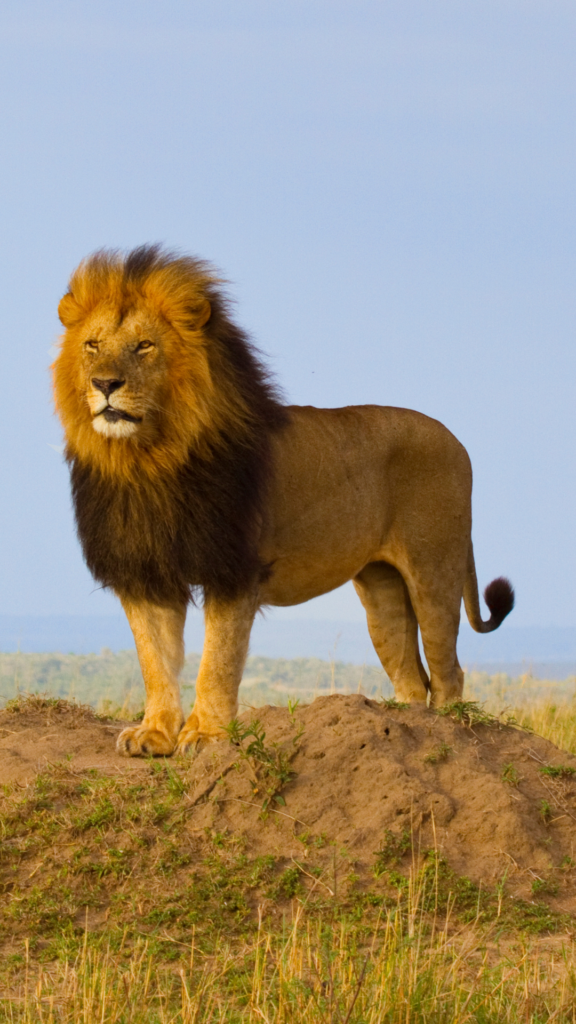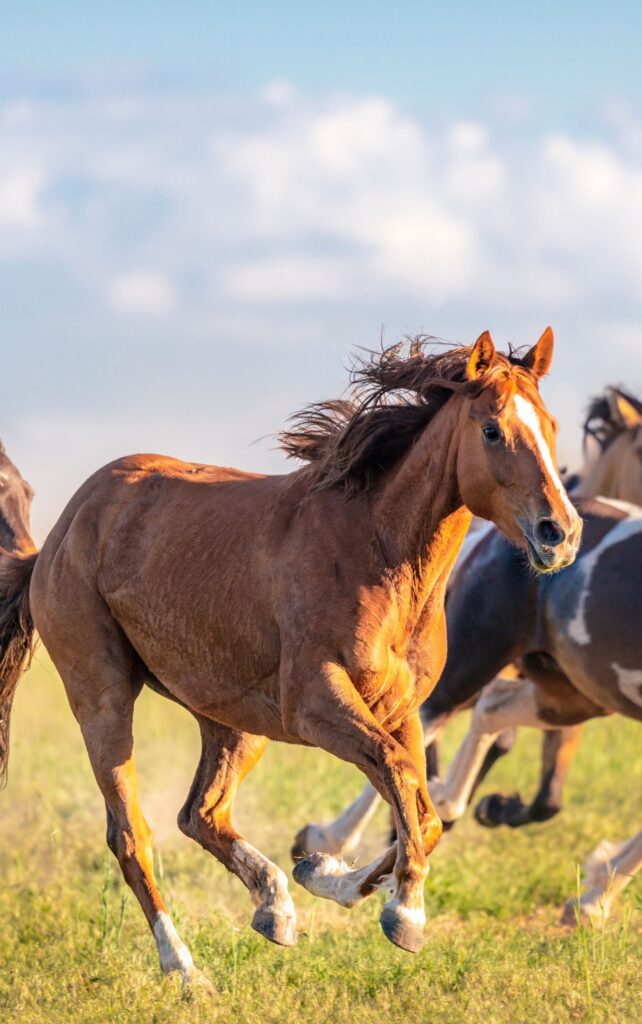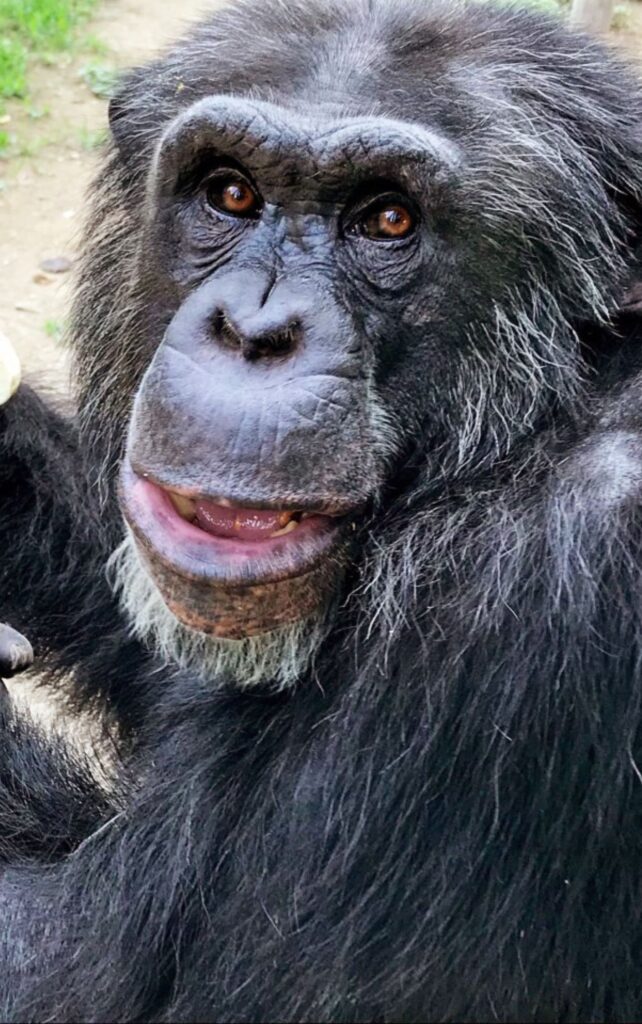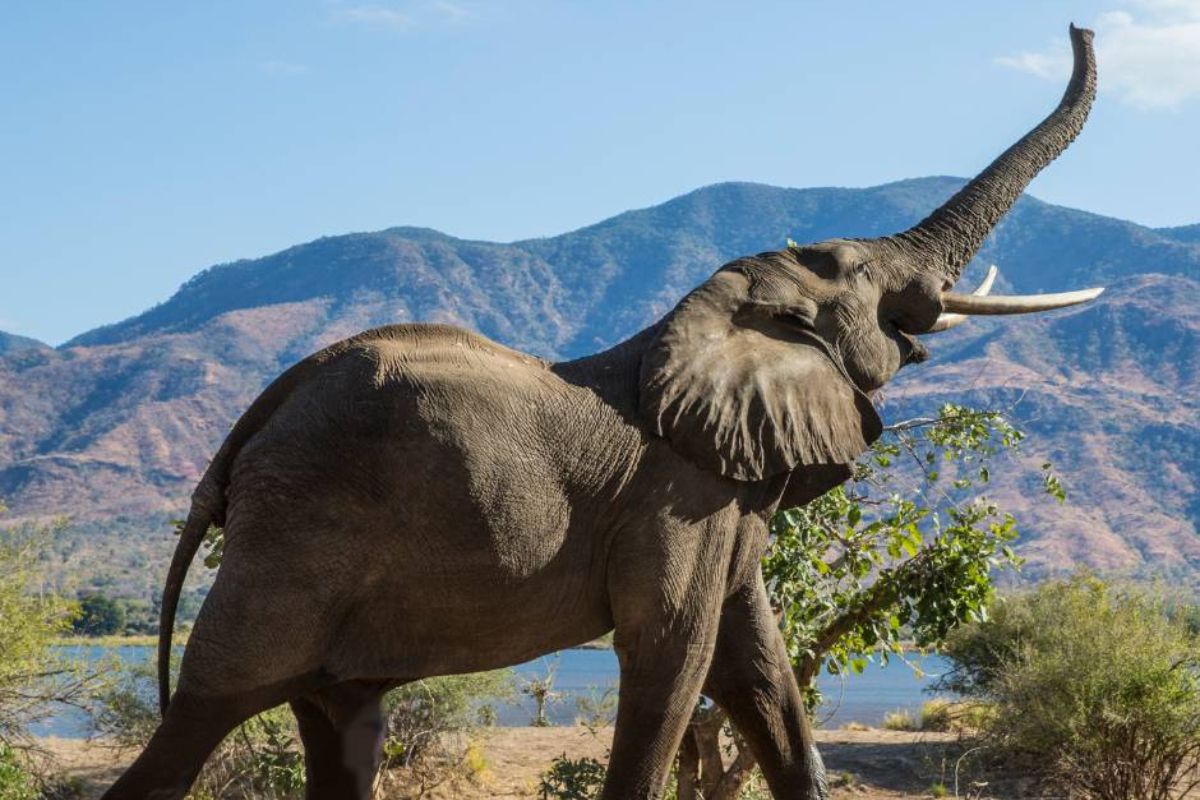Friends of Animals has worked tirelessly throughout 2022 to stop animal cruelty and exploitation, protect critical habitats and provide lifetime care for the animals at our sanctuaries in the U.S. and Africa. We couldn’t do it without you! Check out some highlights from our legal and legislative actions below and then please consider making a donation today to help us continue our fight for animal rights worldwide.
Banning big cats as pets

Friends of Animals joined U.S. Senator Richard Blumenthal and other animal advocates on Dec. 12 at a press conference in Connecticut to celebrate a historic step toward safeguarding captive big cats nationwide—the U.S. Congress passed the Big Cat Public Safety Act. On Dec. 20, President Biden signed the measure, which will prohibit the private ownership of tigers, lions, leopards and other big cats as “pets” while also restricting contact between the public and these apex predators and their cubs for things like selfish selfies. The law gained momentum after the “Tiger King” documentary, and this victory proves, once again, that public backlash matters.
Protecting Yellowstone bison
The surviving herds of wild bison who call Yellowstone National Park home are at grave risk of going extinct under the current Interagency Bison Management Plan. Now these unique animals are going to receive full and fair consideration under the Endangered Species Act thanks to the work of advocacy groups Friends of Animals, Buffalo Field Campaign and Westerns Watersheds Project. Over the summer, U.S. Fish and Wildlife Service made a preliminary finding that the legal petitions have presented “substantial, credible information indicating that a listing action may be warranted.” The agency has one year to make its decision.
Saving the world’s most imperiled species
Russian sturgeon and three other species of the large caviar-producing fish found around the tumultuous Black and Caspian Sea regions could get Endangered Species Act protections under a Fish and Wildlife Service proposal filed in the spring. FWS proposed listing the Russian, Persian, ship and stellate sturgeons under the ESA. The proposal was a longtime coming—it is in response to a March 2012 petition to list 15 sturgeon species by Friends of Animals and WildEarth Guardians. Sturgeon are described as the most imperiled group of animals on earth.
Halting wild horse roundups

At the beginning of 2022, Friends of Animals submitted a rulemaking petition to new Bureau of Land Management Director Tracy Stone-Manning to halt wild horse roundups and convene an independent panel of scientists to overhaul the agency’s controversial Wild Horse and Burro Program rules and policies. FoA wants the BLM to include the impact of cattle and sheep ranching on public land range assessments, and immediately reduce the number of cattle and sheep within wild horse herd management areas when any wild horse management is planned because of range deterioration, followed by a phaseout of all livestock as grazing permits expire. If the BLM denies the petition, FoA will likely take the agency to court.
Protecting migratory birds
NYC birds now have a safer city thanks to Friends of Animals and other members of the Lights Out NYC Coalition that pressed City Council to pass legislation to help protect migratory birds. One of the life-saving “Lights Out” bills passed unanimously by the city council requires city-owned or leased businesses to shut off non-essential lighting during peak migratory periods and times. Specifically, businesses must shut off non-essential lighting from 11 p.m. to 6 a.m. from Aug. 15 to Nov. 15, and from Apr. 1 to May 31.The other bill mandates the city to install occupancy sensors in every city-owned building over the next eight years to also reduce light pollution.
Stopping the hunting of endangered African wildlife on U.S. hunting ranches
Friends of Animals has submitted a legal rulemaking petition to new U.S. Fish and Wildlife Service Director Martha Williams to stop the killing of threatened and endangered species on U.S. hunting ranches. It is appalling that for decades FWS has used its delegated authority to establish a captive-bred wildlife permitting program that has created an entire market for animals headed for extinction that otherwise would not exist. There is no evidence that the slaughtering of these animals on U.S. ranches is helping them in the wild. There are no plans of returning them to their natural homes and there never will be. Profit, not conservation, is the driving force here. If the FWS denies the petition, FoA will likely take the agency to court.
Providing lifetime care for primates in the U.S.

FoA also provides the essentials—healthcare, food and enrichment activities that stimulate wild behaviors and habitat maintenance—for the primates and birds who reside at Primarily Primates, the Texas-based, 78-acre sanctuary that FoA has managed since 2007. Primarily Primates is home to hundreds of animals—including 31 chimpanzees. We continue to rescue animals from the exotic pet trade, roadside zoos, animal experimentation and the entertainment industry.
Supporting free-ranging chimps in Africa
The Chimpanzee Rehabilitation Project, an island sanctuary in the River Gambia National Park, is home to approximately 140 chimpanzees who live in four groups in relative freedom—without bars or cages—on three of the park’s five islands. Friends of Animals’ support ensures that the chimpanzees receive supplemental food for a complete diet and helps prevent over stripping of the island vegetation by the chimpanzees. Many of the refuge’s chimpanzees were confiscated as orphans of parents killed by hunters for bushmeat or parents who were taken for exploitive industries. Some were voluntarily relinquished by people who had unwisely tried to make them into pets. FoA’s support also makes possible the health monitoring that is vital to the survival of these great apes.

